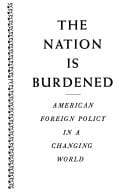Roger D. Masters was the Nelson A. Rockefeller Professor of Government at Dartmouth College. After undergraduate study at Harvard (1955) and service in the Army, Masters completed graduate work in political philosophy at the University of Chicago, where he wrote his doctoral dissertation on Rousseau under the direction of Leo Strauss and Joseph Cropsey.
The central theme of Masters' work was the philosophic and scientific exploration of the role of human nature in political and social behavior. In political philosophy, his studies emphasized Rousseau and Machiavelli and the implications of contemporary biology for understanding human nature. Recently, his research has focused on cognitive neuroscience, the nonverbal behavior of leaders, and the effects of toxic metals (such as lead and manganese) on human behavior.
Information on his work is available via google scholar or wikipedia, or by clicking through to selected books and articles below.
Selected Books
- The First and Second Discourses by Jean-Jacques Rousseau, translated by Roger D Masters and Judith R Masters. New York: St. Martin's Press
- The Nation is Burdened: American foreign policy in a changing world. New York: Random House, 1967.
- The Political Philosophy of Rousseau. Princeton, N.J., Princeton University Press, 1968 reprinted 2015. Also available in French, as La philosophie politique de rousseau. Lyon: ENS Editions, 2002.
- On the Social Contract, with the Geneva Manuscript and Political Economy by Jean-Jacques Rousseau, edited with notes by Roger D. Masters and translated by Judith R Masters. New York: St Martin's Press
- The Nature of Politics. New Haven: Yale University Press, 1989.
- The Collected Writings of Rousseau, with Christopher Kelly, eds. University Press of New England, 12 volumes, 1990-2007.
- Fortune is a River: Leonardo Da Vinci and Niccolo Machiavelli's Magnificent Dream to Change the Course of Florentine History. New York: Simon & Schuster, 1998. (See NYT book review.)
Selected Articles
International Relations
- "A Multi-Bloc Model of the International System," The American Political Science Review, Vol. 55, No. 4 (Dec. 1961), pp. 780-798.
- "World Politics as a Primitive Political System," World Politics, Vol. 16, No. 4 (July 1964), pp. 595-619.
Politics and the life sciences
- "The Biological Nature of the State," World Politics, Vol. 35, No. 2 (Jan. 1983), pp. 161-193.
- “Evolutionary Biology and Political Theory,” American Political Science Review, Vol. 84, No. 1 (March, 1990): 195-210.
- “Biology and politics: Linking nature and nurture,” Annual Review of Political Science. Vol. 4 (2001): 345-369.
Political communication
- "Happy Warriors: Leaders' Facial Displays, Viewers' Emotions, and Political Support,” with Denis G. Sullivan, American Journal of Political Science, Vol. 32, No. 2 (May 1988): 345-368.
- “Dominance and Attention: Images of Leaders in German, French, & American TV News,” with Siegfried Frey and Gary Bente, Polity, Vol. 23, No. 3 (Spring, 1991): 373-394.
- “Emotion and Cognition in Political Information-Processing,” with Baldwin M. Way, Journal of Communication 46 (3, 1996), 48–65.
Toxins and behavior
- "Environmental Pollution, Neurotoxicity, and Criminal Violence," with Brian T. Hone and Anil Doshi, in J. Rose., ed., Environmental Toxicology: Current Developments (London: Taylor and Francis, 1998), pp. 13-48.
- “Water treatment with silicofluorides and lead toxicity,” with Myron J. Coplan, International Journal of Environmental Studies, 56 (4, 1999): 435-449.
- “Confirmation of and explanations for elevated blood lead and other disorders in children exposed to water disinfection and fluoridation chemicals,” with Myron J. Coplan, Steven C Patch and Marcia S Bachman, Neurotoxicology, 28(5, 2007): 1032-42.







